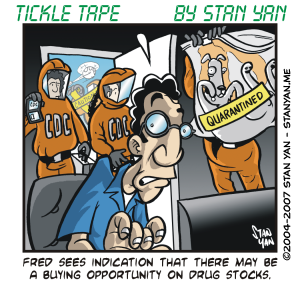Winning traders are objective and detached from the ongoing market action. They don’t stare at their screens and allow their emotions to move up and down with how well their trades are doing. But novice traders often have difficulty remaining objective and unemotional. There’s a very human tendency to avoid risk and loss. In everyday life, our emotions protect us. When we anticipate harm, we become fearful. Fear is a powerful emotion. When we are afraid, we react quickly and instinctively. And when we act out of fear, it usually leads to impulsive decisions and trading errors. The more you can stay objective and detached, the easier it will be for you to control your emotions.
If humans didn’t react to market events with strong emotions, there would be no volatility to take advantage of. Fear and greed are powerful emotions that sway the masses to buy and sell at the wrong time. The only difference between you and the masses, however, is that, as a successful short-term trader, you must control your emotions and not be influenced by fear and greed. Master traders know how to control their emotions. They remain detached and objective.
When the stock falls to the protective stop, the position is closed immediately. There is no sense of guilt, worry, or uneasiness. Small, controlled losses are expected, and there is no reason to be overly concerned about it. Similarly, when the stock price moves up to the profit target, the seasoned trader assesses the price movement and either close all or part of the position or even adds to it while raising the stop-loss. Either way, the seasoned trader has planned the trade and is trading the plan with controlled emotions and calm, detached confidence that generally produces consistency and success.
It may be hard to stay unemotional and detached. The more experience you gain as a trader, however, the easier it will be. People are most afraid when they encounter novel and unforeseen situations, and when newbie traders first start out trading, their initial experiences are new and unpredictable. Under these conditions, it makes sense to put things in your favour.
For example, limit your risk. If you make the outcome of a single trade relatively insignificant, you will be able to remain more detached. Similarly, trade with money you can afford to lose. If you know that a loss will really hurt you, it will be difficult to convince yourself that the outcome doesn’t matter. The more you can believe that an outcome truly doesn’t matter, the easier it will be to remain detached and objective. And if you can remain detached and objective, you’ll trade more freely and effortlessly.


